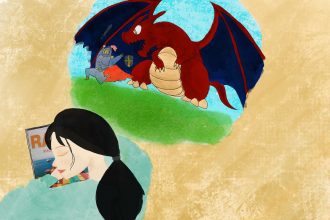
October 12 marked the five-year anniversary of Sargeant Leo Major’s death. If you find yourself asking “who in the world is Leo Major?” you may find solace in the fact that virtually every reader is wondering the exact same thing. A Google search on the fifth anniversary of this Canadian soldier’s passing turned up a whopping zero articles so one can hardly be blamed for not being familiar with this man.
So who is Leo Major? Well, he was a private in Regiment de la Chaudière in World War II, who within a day of landing in Normandy, single-handedly seized a German half-track armoured vehicle. A few days later, he lost vision in his left-eye after one of the four SS he ambushed and killed managed to ignite a white phosphorous grenade prior to dying. Despite what many would have considered their “ticket home,” Major refused to leave the front, arguing that he only needed his right eye to snipe Nazis. Unhindered by his injury, at the Battle of the Scheldt, Major decided to take some added initiative during a reconnaissance mission; after venturing out on his own, he captured 93 German soldiers, including their commander, and returned them to the Canadian front as prisoners. Alone. This earned him what would have been his first Distinguished Conduct Medal (DCM), had the then-private not refused it on the grounds that the Allied Forces commanding General’s “incompetence” rendered him unfit to hand out medals.
Months later, he suffered four broken ribs, two broken ankles and his back being broken in three places when a vehicle he was riding in was blown up by a land mine. Once again faced with the prospect of being sent home, Major broke out of the military hospital and hid in a Dutch family’s home for a month, waiting to recuperate and rejoin his Regiment. As the Canadian troops approached the city of Zwolle in 1945, Major was sent out with a fellow soldier on a reconnaissance mission, prior to the troops bombing the city. After a German sentry spotted the two Canadian soldiers and killed his companion, Major went on a rampage unparalleled in military history.
Taking his dead friend’s weapon, he single-handedly charged the town, killing every sentry in his way, except for one, who he spared and urged to leave town as the Canadian troops were about to march through at any minute. Major then continued his lone march through the town, destroying every Nazi post in his way. Taking their ammunition, running around unloading weapon after weapon, and launching grenade after grenade, Major convinced the German division in the town actually that an entire squadron was marching through. By the time the last German soldiers had fled, Major had found Zwolle’s SS headquarters, killed the eight officers in it and blew up the Gestapo headquarters. This time, he accepted the DCM.
Ten years later, he volunteered for the Korean War and got back to his rampaging ways. With 19 other soldiers, he took over a strategic hill and held off two entire Chinese divisions consisting of over 14 000 men for three days until backup arrived. Major became the first and only person to receive DCMs in two separate wars.
While this story may certainly sound fictitious, perhaps reminiscent of Rambo, it is entirely true. To this day, a main street in Zwolle bears Major’s name and his story is part of school curriculums in the region. Ironically, in Canada, he remains largely unknown. While rampages as wild and unbelievable as Major’s aren’t the norm, Canadian forces have played an instrumental role in a variety of conflicts, dating back over two centuries.
Canadians have long, and rightfully, prided themselves in being a peaceful nation and a land of freedom and equality. Though war is far from being a peaceful activity, it has often proved a necessary means to promoting and maintaining freedom, as well as the sanctity of life around the globe. Without the heroic conduct of our ancestors, we would be living in an entirely different world with very few of the underappreciated luxuries that we have today.
All too often, disparaging remarks are made about the military, where some individuals associate our armed forces with violence, murder, and oppression. Granted, violence is an unfortunate aspect of the military, but it is one whose existence is not voluntary, but necessary. Perhaps the greatest irony in the criticisms of our armed forces is that were it not for the sacrifices of our countrymen in military conflicts over the last centuries, the people presently slandering our troops would not be able to do so, without fear of violent reprisal. Their very freedom to criticize our troops has been acquired through the sacrifices of our troops.
At McGill, we are particularly connected to Canadian military history. Sir Arthur William Currie, the first Canadian-appointed commander of the Canadian Corps who led our troops to the great victory at Vimy Ridge in 1917, was Principal and Vice-Chancellor of the school from 1920 to 1933. As Remembrance Day approaches, it is our duty as Canadians, and as McGillians, to pay tribute to our troops and honour the sacrifices that they have made to secure a better future for us all. Further, we must all make a concerted effort to be appreciative not only on Remembrance Day, but each and every day, as there are still Canadian boots on the ground all over the world, risking their lives in the fight for justice and freedom. In the absence of coverage of the anniversary of his passing by other news outlets, I would like to offer my deepest gratitude to the family of Corporal Leo Major. A true, unsung Canadian hero.
The views expressed in this opinion piece are the author’s own and do not necessarily represent those of The Bull & Bear.

